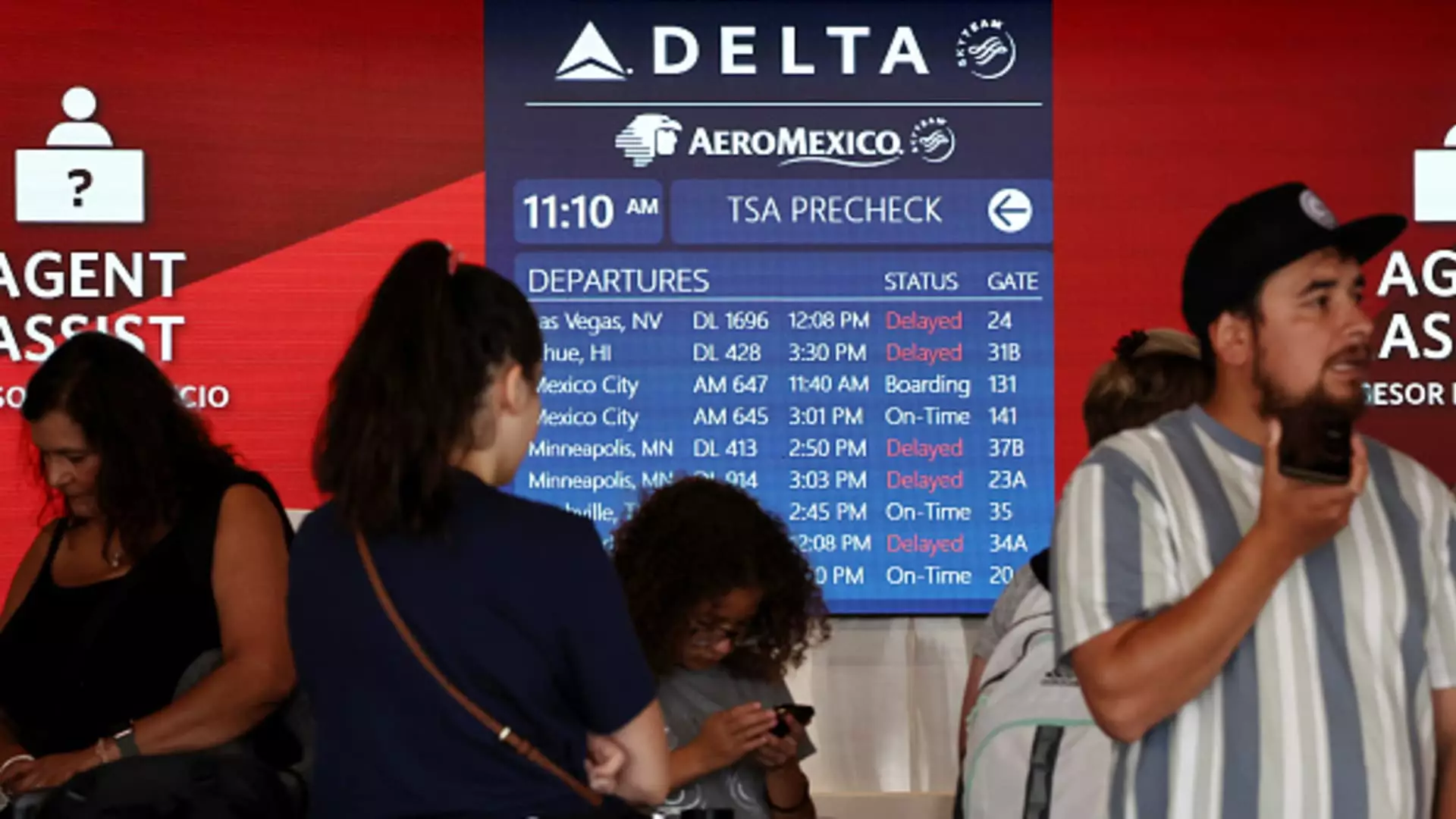Delta Air Lines recently faced a massive outage that resulted in thousands of flight cancellations. Despite the severity of the situation, Delta reportedly rejected onsite help from CrowdStrike, a cybersecurity company. This decision came as a surprise to many, especially considering the significant financial impact the outage had on the airline.
Delta CEO Ed Bastian revealed that the mass cancellations following the outage cost the company approximately $500 million, including customer compensation. In response, Delta announced that it plans to pursue legal claims to recover its losses. The airline has hired a law firm to assist with this process, indicating its seriousness in seeking damages related to the outage.
CrowdStrike’s lawyer, Michael Carlinsky, expressed his concern over Delta’s litigation threats creating a misleading narrative. He stated that the company had reached out to offer onsite assistance, but received no response from Delta. As a result, there seems to be a miscommunication regarding CrowdStrike’s role in the outage and Delta’s response to it.
The outage led to Delta canceling more than 5,000 flights within a week, causing disruptions and inconvenience to thousands of passengers. This had a significant financial impact on the airline, with repercussions that extended beyond customer compensation. The stock value of CrowdStrike also took a hit following the outages, emphasizing the widespread consequences of the incident.
Carlinsky’s letter to Delta emphasized the importance of transparency in handling the situation. He highlighted the need for Delta to take responsibility for its actions and communicate openly with the public, shareholders, and potentially a jury. The letter also called for Delta to preserve key documents related to its IT infrastructure and handling of outages in the past five years.
While tensions may be escalating between Delta and CrowdStrike, the cybersecurity company expressed its hope for a cooperative resolution. CrowdStrike stated that it remains open to working together with Delta to find a mutually beneficial solution. This indicates a willingness to move past the current conflict and focus on resolving the aftermath of the outage.
In response to the outage, CrowdStrike vowed to release future software updates in stages to prevent similar incidents from occurring. This proactive approach demonstrates a commitment to learning from past mistakes and improving their systems to avoid future disruptions. Similarly, Delta emphasized the importance of thorough testing in mission-critical operations to prevent unforeseen issues.
The fallout between Delta Air Lines and CrowdStrike highlights the complexities of managing IT outages and the challenges of assigning responsibility in such situations. Moving forward, both companies will need to navigate the aftermath of the outage while prioritizing transparency, cooperation, and addressing the financial and operational impacts of the incident.

Leave a Reply